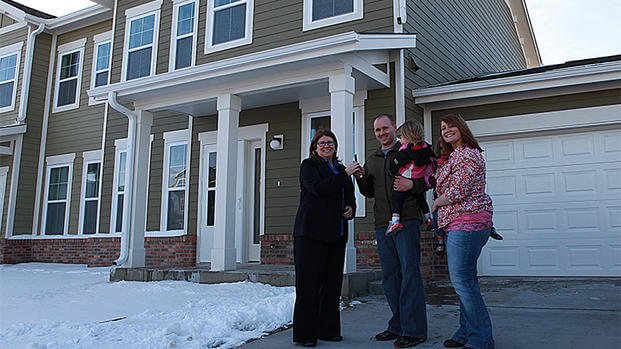During this busy PCS season, many military families are wondering, "Should we buy a house?" Buying a house is appealing for so many reasons: feeling like you're investing in something vs. throwing away money on rent, knowing that you won't have to move between PCSes, and being able to paint and decorate the way you want.
I'm not hugely in favor of home buying for military families, because I have seen a lot of families stuck in bad financial situations because of houses that won't rent or sell. I have written about this extensively, and I'll probably do it again, but for today I want to focus on just one small aspect of the equation: all the extra expenses that come with owning a home.
When most people do the "should we rent or should we buy" debate, they consider primarily the cost of the mortgage vs. the cost of rent. Unfortunately, this doesn't even begin to cover the expenses of owning a house. When you rent, you are responsible for rent, and usually utilities, and then whatever damage that you do to the house. When you own the house, you are responsible for those same things, plus so much more.
Things like:
Painting: Houses require repainting. Pretty regularly, actually. Depending on the paint used and how hard you wear your house, repainting can be required every few years. Even savvy do-it-yourselfers will still spend money for paint and supplies.
Window Treatments: Many rentals come with some sort of basic window treatments. Most houses that you buy do not, especially if they are new construction. My husband and I bought our first house when we were new-new-newlyweds. Even though it was small, and had only a few windows, I was still not prepared to drop $200 on cheap miniblinds.
Landscaping, including tree care and removal: Even if you're a super-gardener, landscaping costs money. And most of us don't have the skills or tools to care for big trees, or remove them when necessary.
Plumbing: A basic backed up pipe will cost at least $100 to fix. More major plumbing repairs can quickly run into the hundreds, and even thousands, of dollars. I have literally had to call a plumber on the very first day we moved into a new-to-us house - the house had been vacant for several months, and a root had grown through the main line out to the sewer.
Appliances: Stoves, ovens, dishwashers, garbage disposals, built-in microwaves. None of these last forever, and they're not cheap.
Flooring: No flooring lasts forever. Carpets and vinyl or linoleum flooring have the shortest life, usually between 5 to 10 years. Ceramic and porcelain tile can last longer. Hardwood requires regular maintenance to make it last. These are all in the thousands of dollars categories, and prices can climb with higher grade choices.
Roofs: This has been a hot topic with my home-owning friends, and I was shocked to learn that a new roof can easily cost $10,000 or more. Wow!
Heating and Air Conditioning Units: This is another area that can get super-expensive very fast. A friend just replaced her whole HVAC system. It was $9,000. Ouch.
And lastly, all the little stuff: Until you have owned a house, it is hard to imagine how many small things can need repair. Here's a sample of things I've paid for within the last year alone:
- front door lock,
- the little sleeves that go around the candelabrum on a chandelier,
- replace bathroom fan,
- refinishing bathroom shower pan,
- recaulking bathrooms,
- new faucet on sink,
- glass in outside light,
- reattach loose siding,
- gutter clearing and repair,
- replacing a little piece of damaged wood on the outside,
- special battery for garage door opener,
- repair to bannister,
- sealing bathroom grout,
- new light switch covers,
- new ceiling fan, and
- touch up of exterior paint.
When you're considering the costs of home ownership, I suggest that people add 20-30% to the price of the mortgage (including taxes and insurance and homeowners association due.) Then, you're making a much better comparison between the price of owning and the price of renting.









